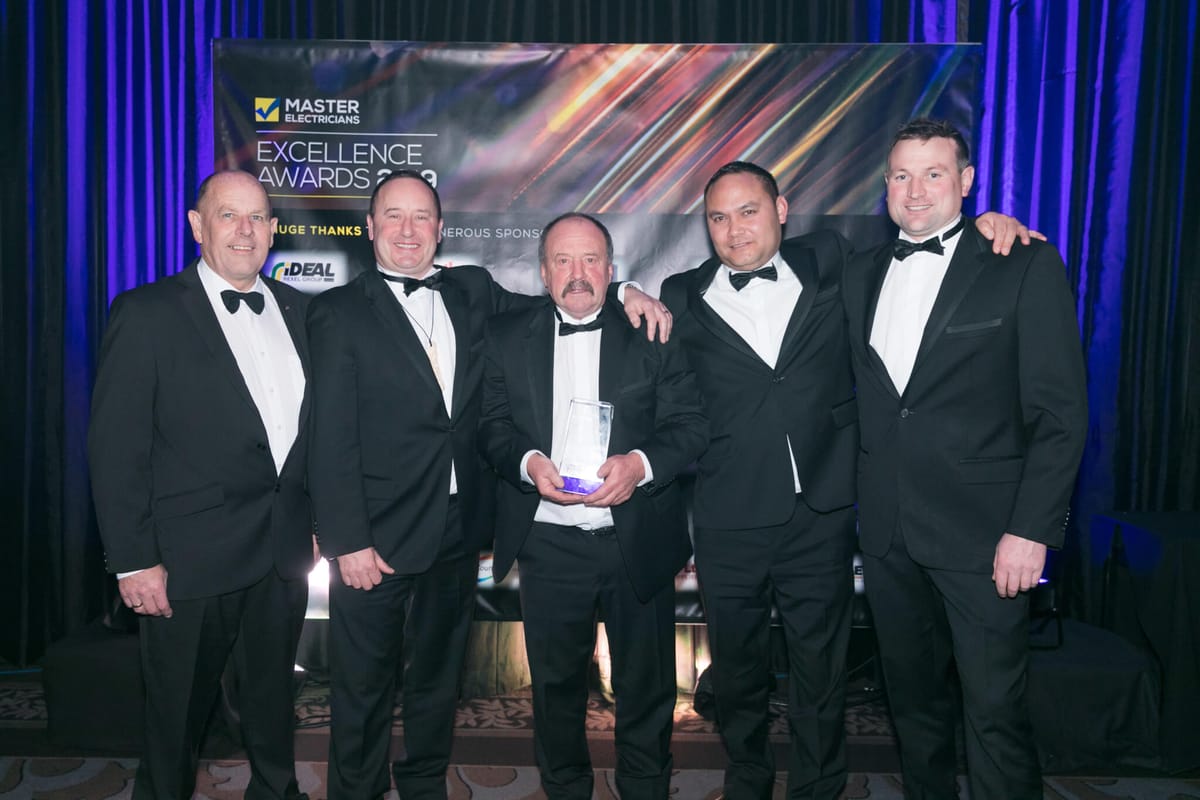
A modern and solution to a significant workplace safety risk has seen a Southland business take home a national award. Invercargill-based automation engineering and electrical company EIS won the Gold Innovation Award at the 2019 Master Electricians Excellence Awards earlier this month in Auckland in the Innovation section for their work-related safety initiative, the MCC Transporting Trolley.
EIS CEO Dean Addie said he was delighted with the team’s efforts and was proud to be part of a team that was inherently dedicated to seeing its staff go home safe, every day.
The team had been utterly dedicated to developing the solution and to see their work recognised on a national level was a fantastic result for everyone, he said.
“I’d like to say I saw a problem and instructed the team to fix it with me supervising from concept to completion, but the reality is that I had nothing to do with it.
“The team saw the problem and went about fixing it themselves – they’re a great team doing great stuff; he aha te mea nui o te ao; he tāngata, he tāngata, he tāngata.”
Engineered specifically for aiding the installation of Motor Control Centres (MCCs), or large switchboards, within larger projects, EIS’ innovative solution to dealing with the dangerous movement of MCCs is a game changer for the industry, with scope for it to become best practice across New Zealand.
MCCs are large, tall and pose the risk of tipping due to being top-heavy. They are typically multi-tonne and require up to 10 team members to install each MCC on-site.
Installing an MCC is an industry-wide health and safety risk which, up until EIS’ solution, had seen no best-practice installation method.
Determined to find a solution, EIS formed a core group of five team members who collaborated, researched, developed and manufactured a transport trolley which would safely support the immense weight of an MCC.
The trolley is a series of configurable and modular components that takes little time to assemble. The first trolley was built to transport an MCC weighing 1.6 tonnes. The construction of the frame adds extra stability to the MCC while being manoeuvred.
Not only does the MCC Transporting Trolley reduce the risk of workplace accidents, it has also reduced the number of people required to transport an MCC to four people.
Addie said feedback from the installation team using the MCC Transporting Trolley had been overwhelmingly positive.
“They feel it’s much more stable moving the MCCs now and that feeling of ‘is it going to tip?’ is gone – they feel in control the whole time,” he said.
“Not only is this a great win for our team, but it also means clients can have absolute confidence in this part of the process eliminating the worry about whether the MCC is going to tip and therefore add stress to the project budget and timeline.”
Future applications for the trolley in the short term will see us use it for EIS’ MCC installations. The team will continue to provide feedback to ensure further, incremental improvements can be made.
Long-term, Addie hoped there would be potential for it to be adopted as the best-practice method for installation by companies throughout New Zealand. It could also be adapted to suit other industries and applications, he said.
Addie and EIS Southland Electrical Manager David Lee have also collaborated with WorkSafe on the development of an industry wide best practice guide for installing electrical panels. The guide is due for publication in September.
EIS is a multi-disciplined automation engineering and electrical company with extensive experience working on sites throughout New Zealand and around the world. It has offices in Invercargill and Christchurch and employs around 100 people.

